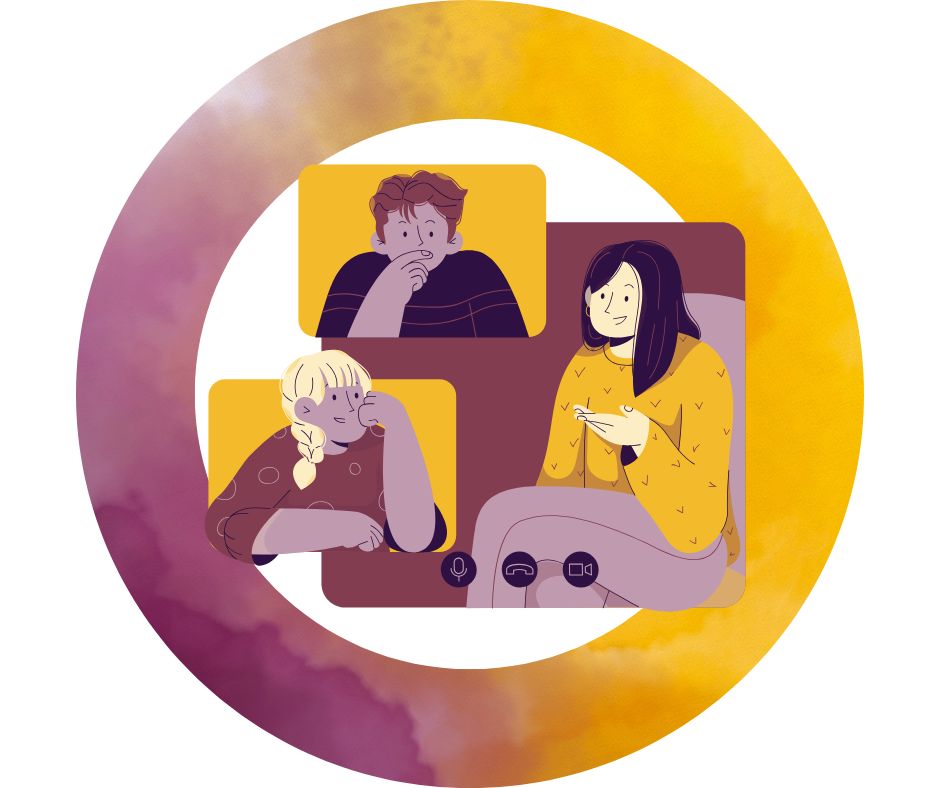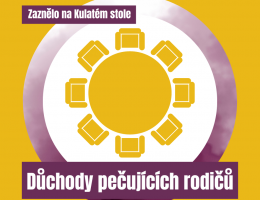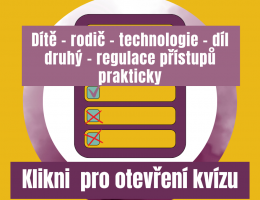Training for educators

Mental Health First Aid in School
Educational program for teaching and non-teaching staff at primary, secondary, and art schools.
Duration: 8 teaching hours (45 minutes each). The workshop combines both theoretical and practical components.
Number of participants: 14
Price: 20.000 CZK (plus travel expenses)
Contents:
- What is mental health first aid, and how it differs from crisis intervention
- Crisis development
- Effective and ineffective strategies
- Panic attacks and basic rules for managing them
- Work with a group of students
- Communication in a difficult situation
- My coping strategies: How I personally cope with crises
- Case studies
- Practice in managing crisis situations

You can find the inquiry form at the bottom of the page or use the one in the Contacts section. We look forward to seeing you.
If you would like to know more – below, you will find a detailed description and an introduction of the lecturer.

Training objectives:
Course graduates
- understand what mental health first aid is, and can define its differences compared to crisis intervention
- are able to list challenging situations in school that require mental health first aid
- are able to sort and explain effective and ineffective first aid strategies
- are able to explain how panic attacks in children work and propose a plan to manage such situations
- are able to define what individual participants experience during a crisis situation and propose specific strategies for working with each group
- are able to summarize rules of communication in challenging situations and have themselves practiced applying them in simulated situations
- have reflected on their personal coping strategies and proposed how to apply them in their own professional lives
- leave with a plan of implementing what they have learned into practice

Description of individual sections:
- Introduction and expectations for the workshop (active part)
The session will begin with a welcome and introductions among the participants and the lecturer. Together, we will discuss topics participants would like to learn more about, as well as specific situations they are interested in.
- What is mental health first aid, and how it differs from crisis intervention (theoretical part)
Clarifying the difference between mental health first aid and crisis intervention. We will discuss what teachers/lecturers can do in a given situation, and what should be left to professionals.
- Specific situations in school where we use the art of providing mental health first aid, characteristics of a difficult (crisis) situation, and its course (active part)
After the active part, we will learn the definition of a challenging (crisis) situation and examine its course in greater detail.
- The concept of mental health first aid (theoretical part)
We will take a closer look at the concept of mental health first aid, discuss what it encompasses, and explain several basic approaches for working in this area.
- Effective and ineffective strategies (active part)
Following the active part, we will go through individual strategies and apply them together to specific situations we encounter.
- Calming techniques – panic attack (active part)
Introduction to techniques that can calm a student in need of mental health first aid. We will explore the dynamics of a panic attack that a child may experience and demonstrate how to handle it. Practical training.
- What about the other present students (active part)
We will focus on individual groups present in the crisis situation and discuss the needs of each group in the given moment together.
- Communication in a difficult situation (theoretical + active part)
Introduction to communication principles in crisis situations, with techniques demonstrated through specific scenarios.
- Practice (active part)
We will focus on practical training. In particular, participants will practice communication within the framework of mental health first aid.
- How to take care of yourself while managing students’ crisis situation: My coping strategies (active part)
Me in the middle of someone else’s crisis. Clarifying what my task is, what I can provide, defining roles, and setting boundaries. We will focus on terms such as “supervision” and “psycho-hygiene”. We will get familiar with the term “coping strategy” and try to find those of them that we utilize. We will demonstrate the difference between coping strategy and defense mechanism.
- Desperate situations (theoretical part)
How to proceed when our willingness meets resistance. Where lie the legal boundaries of assistance.
- Case studies (active part)
We will look at the most common crisis situations in schools and together attempt to propose solutions within the concept of mental health first aid. Before the workshop, you can send a description of a situation you have encountered and would like to discuss during the course with the participants and the lecturer.
- Conclusion
Participants will themselves identify the first step they will implement into practice in the near future. Workshop ending.

LECTURERS:
Bc. Šárka Svobodová
PARTICIPANT FEEDBACK (unedited):
„For me, it was a great training session. I wrote this to the instructor at the end of the training.
The training was conducted professionally, in a non-directive manner, and the instructor adapted to our needs during the session and worked with them. She was able to improvise, and the content of the training was actually tailored to what emerged from us. She was able to guide and develop the ongoing discussion. More of this – that is what our team needs. Thanks, and I look forward to the follow-up.“
„I was extremely satisfied. I liked Mrs./Ms.[lecturer]very much, she had a beautiful, intelligible delivery and I loved that she also included various little activities for us and it was not merely about lecturing.“
„I was satisfied. I liked how the lecturer responded to the discussion and moderated it, while bringing new solutions for various situations at the same time. I would not change anything about the first part and am curious about the second one:)“
„I found the training session very pleasant, with new information for meas someone without background in education.Many thanks to the lecturer for her attitude and demeanor.“
„First, I was surprised at the lecturer’s young age. I said to myself that we needed someone who already has some practical experience. However, it turned out that this was more than compensated by the lecturer’s attitude and information, and I have a good feeling about the training session and am curious about the next part. “





